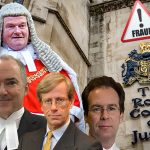
Paul Millinder’s Legal Odyssey Enters a New Phase
February 17, 2025
Intelligence UK Investigations Ltd v Lord Chancellor & ors
September 12, 2025Download a copy of this article exposing Met Police & City of London corruption by concealment of crimes – they just refuse to investigate.
The institutionally corrupt Met and City of London Police have sunk to new levels in shielding the corrupt judiciary and English government from prosecution.
We reported an obviously corrupt judge of the King’s Bench Division in the Strand to the Met Police, they closed it down without even investigating. The ridiculous decision from Met Police sets their position that judges, or anyone in fact, in a civil court room are made selectively, ‘above the law‘.
We reported 23 corrupt judges of the Rolls Building on Fetter Lane, after our experts used AI search analysis to come up with absolute proof that the crucial evidence and facts had been concealed.
The crucial evidence and facts concealed are embedded in fraud and cross over criminal offences, that have been deliberately covered up by allegedly corrupt police and judges, throughout the course of public justice.
City of London Police, starting with PC Kevin Blower ‘blew away’ all the evidence and the investigation that never started.
All we received is broken promises, ‘we will write with an update’, ‘the investigator will call you to discuss’, ‘we sent an email with reasoning’, but nothing ever materialized.
City of London Police closed it down, an indictable only serious offence in conspiracy, committed over a protracted period of time. Were they making allegedly corrupt English judges ‘above the law‘?
The wilfully blind judges and investigators?
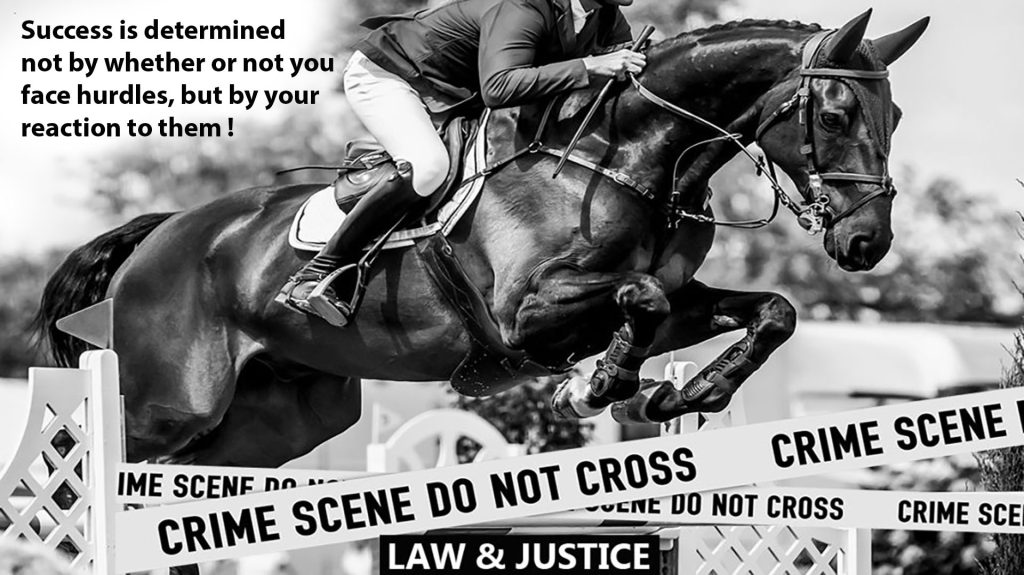
What is the rule of law?
The rule of law is a fundamental principle that ensures all individuals and institutions are accountable to the same laws, which are applied equally and fairly. It supports the equality of all citizens before the law and prevents the arbitrary use of power, thereby securing a non-arbitrary form of government.
The rule of law encompasses several key principles, including accountability, just law, open government, and accessible and impartial justice.
“The police would not directly intervene any matter that has taken place within a Courtroom”
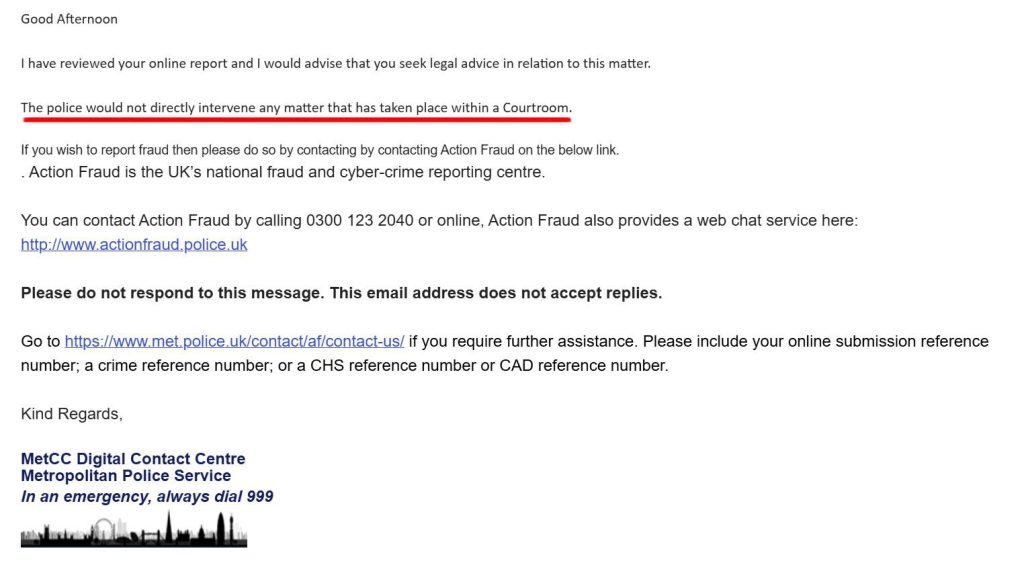
An affront to the Court of Appeal and law that creates the indictable only offence
Met and City of London Police are top of the great list of British failures, with widespread abuse of the public trust and taxpayer’s funds. Can they be trusted, and who do they really act for?
The former Master of the Rolls, Lord Denning, ‘the people’s judge‘ sitting in the Court of Appeal in the leading final judgment on the doctrine of judicial immunity from suit said this:
“Of course, if the judge has accepted bribes or been in the least degree corrupt. or has perverted the course of justice, he can be punished in the criminal courts. That apart, however, a judge is not liable to an action for damages. The reason is not because the judge has any privilege to make mistakes or to do wrong. It is so that he should be able to do bis duty with complete independence and free from fear”
Source: Denning M.R in Sirros v Moore 1974 QB CA 118, p.467D
Of course, to get them into the criminal courts to start with, the police actually need to enforce the law, so that everyone is equal before it, but the once great English rule of law has gone by the wayside, along with just governance.
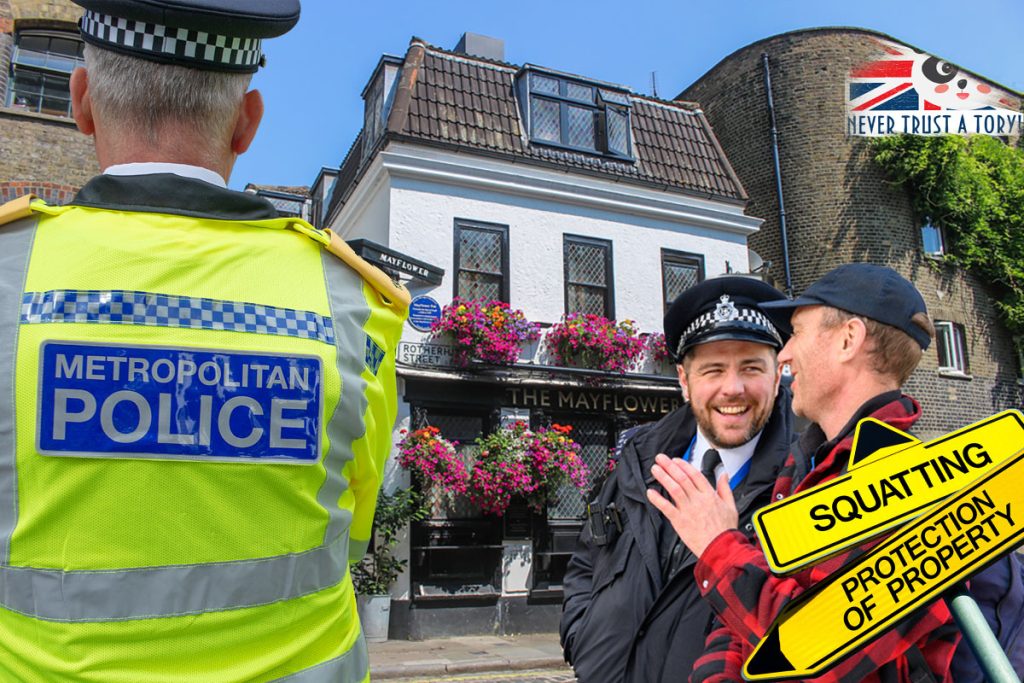
The offence we reported: Perverting the course of public justice
Intelligence UK’s covert operation is advancing 6 unrelated judicial corruption cases through the courts in the public interest.
The common synergy in these cases we investigated (using A.I search to prove the concealment), is that we are dealing with the ‘judges who deliberately do not judge‘.
There is deliberate concealment of crucial evidence and facts in all 6 cases, all of which entail fraud in various forms by members of the judiciary, and government office holders themselves. We described the acts simply as ‘concealment of facts and evidence‘.
AI justice analysis
‘Concealment of facts and evidence‘ precisely describes the conduct we have found across a multitude of cases we investigated over the years. The UK AI algorithm result for the term describing the acts we investigated is this:
“In the UK, concealing facts or evidence that are relevant to a criminal investigation or court proceedings is a criminal offence known as “perverting the course of justice“. This can include destroying, falsifying, or concealing documents, or actively preventing the discovery of relevant information”
“Concealment of evidence, or tampering with evidence, involves altering, concealing, falsifying, or destroying evidence with the intent to interfere with an investigation, and is a criminal offense in many jurisdictions.”
“In the UK, deliberate concealment of facts or evidence can impact legal proceedings, particularly regarding limitation periods. Section 32(1)(b) of the Limitation Act 1980 states that the limitation period doesn’t start until the claimant discovers the fraud or concealment, or could have done so with reasonable diligence.”
City of London Police shielding the corrupt from prosecution
Following Intelligence UK’s ‘Operation Blackjack‘ investigation into ’21 judicial transgressors’ (now 28), on 17 January 2025 we got a response back as to the offences we reported said to have occurred at the Rolls Building on Fetter Lane, in the City of London, by some of those transgressors:
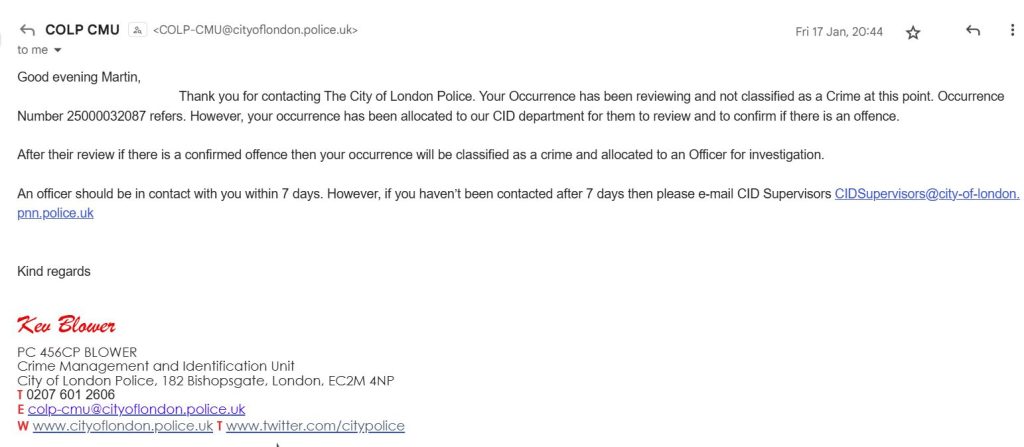
City of London Police’s PC Kevin Blower first blew away the investigation of perverting by marking the indictable only offence as a civil matter.
Was it done knowing that one of his cohorts in CID would pretend to investigate kick it down the road then dispose of it?
It transpired that is precisely what they did.

We invited Mark Rowley, the Commissioner for Met Police and the City of London Police for comment on this article, as we have, the former Commissioner of Thames Valley Police, Anthony Stansfeld.


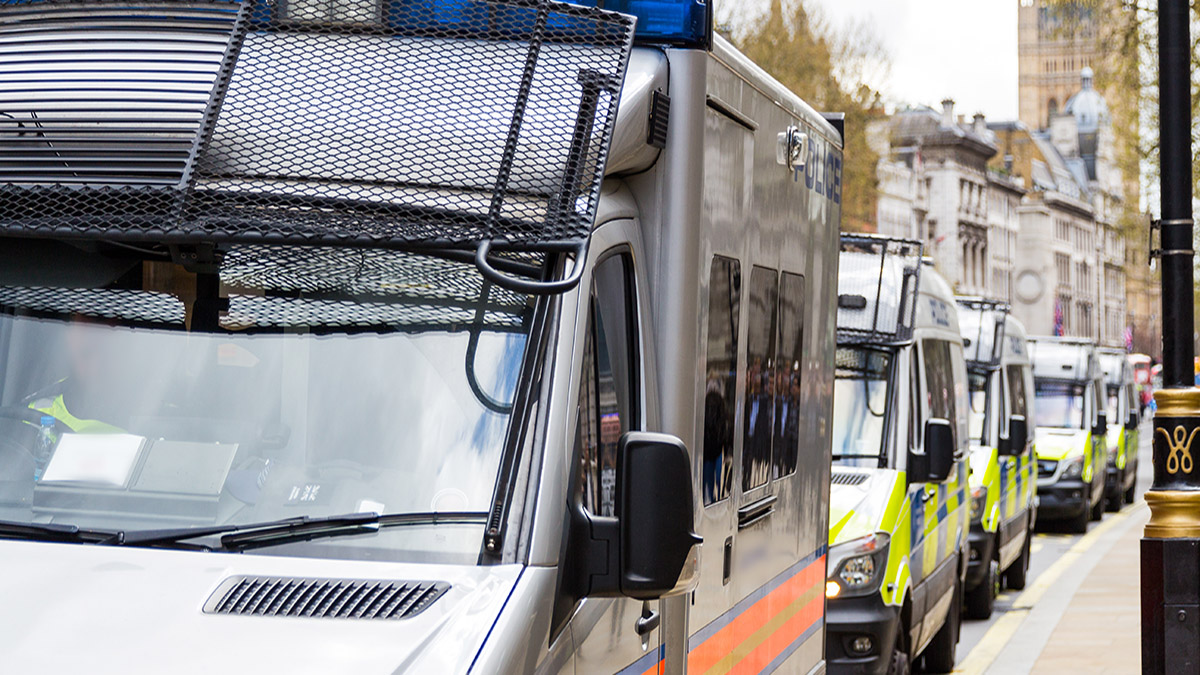
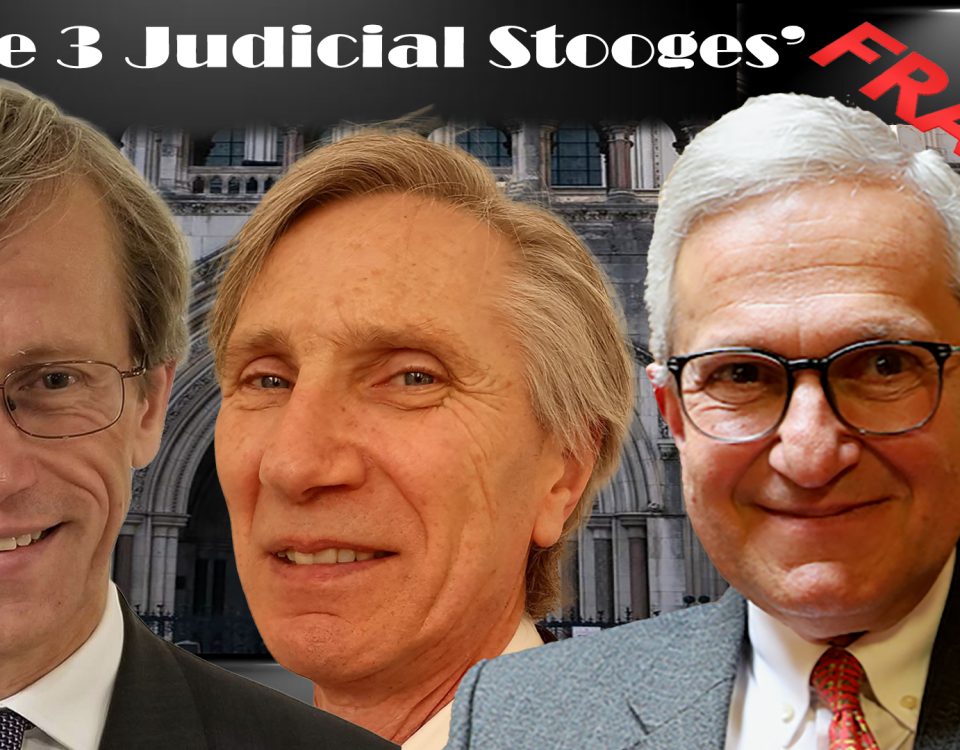
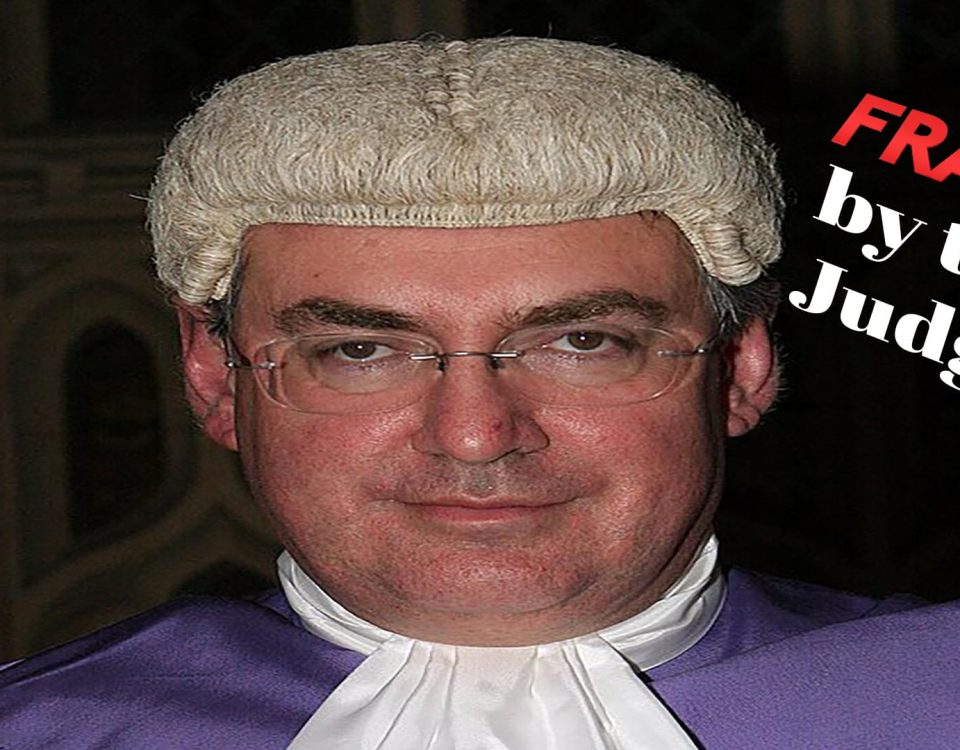
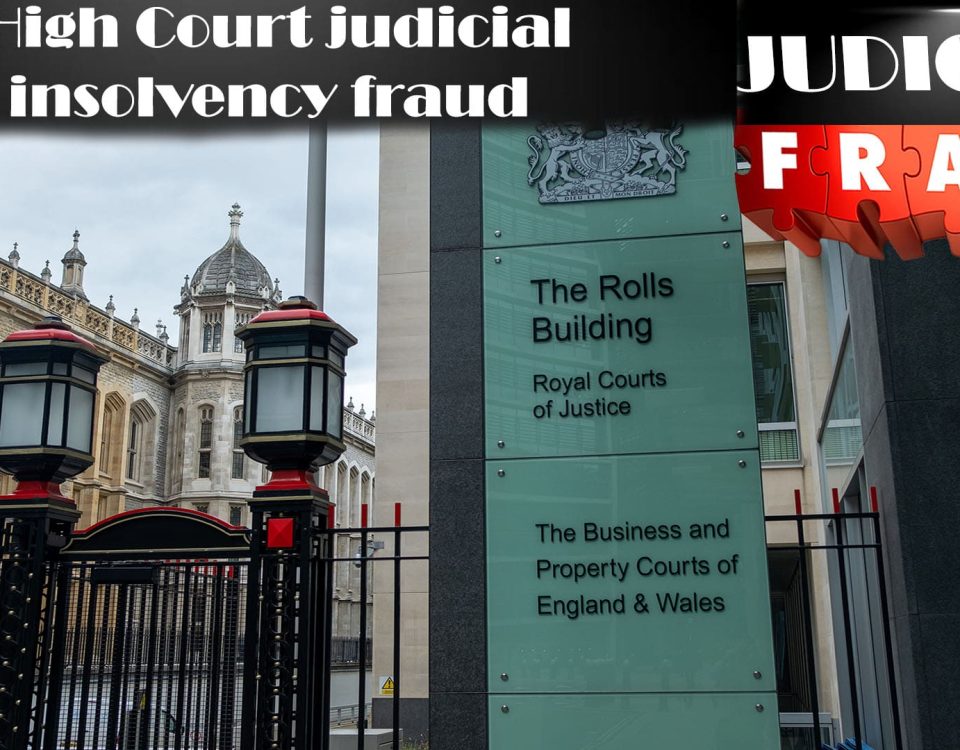


1 Comment
During my nearly nine years as the PCC of Thames Valley I led nationally on fraud. Thames Valley successful prosecution of Lloyds HBOS Reading on a massive fraud was the only major fraud investigated by any police force. Fraud cases are just sent to Action Fraud, a call centre in Glasgow. Little emerges, and if it does it is largely ignored. The City of London Police, whose main reason for existing is to deal with fraud rarely does. The FCA ignores it, as does the NCA. I had copious correspondence with Andrew Bailey when he ran the FCA. He did nothing.
I never know if the police are being idle, incompetent or corrupt. Probably a bit of all three, though the actions of Avon and Somerset look like corruption. I have an interesting file of all my correspondence with Theresa May, Andrew Bailey, Mark Carnie, Graham Biggar, Lloyds etc. some of it is damning.